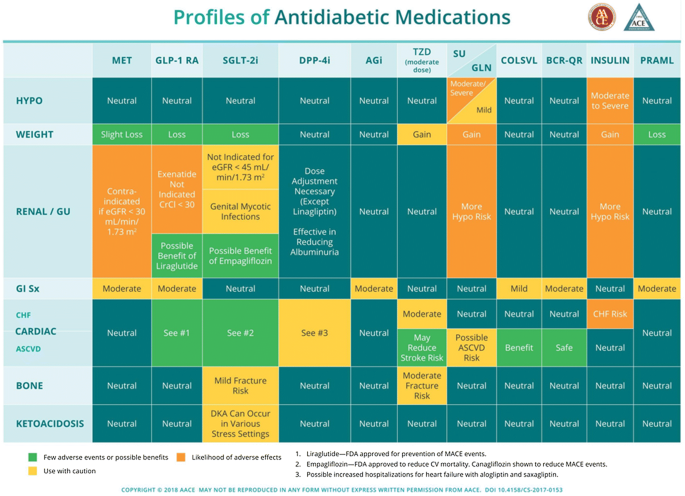Discover the Dual Benefits of Diabetes Drugs
Diabetes medications are primarily known for managing blood sugar levels, but they offer another significant advantage: weight loss. This dual action is particularly evident in medications like GLP-1 agonists and SGLT-2 inhibitors. According to the Mayo Clinic, these medications not only help control blood sugar but also assist in weight management by enhancing the body’s sensitivity to insulin.

Image source: Source
Recent studies suggest that the benefits of these diabetes drugs extend beyond diabetes management. They may also help reduce the risks of Alzheimer’s disease and opioid overdose. Research published in The Daily highlights the promising impact on Alzheimer’s risk, adding a new dimension to their use.

Image source: Source
The implications of these findings are profound, offering promising avenues for broader health improvements. As the healthcare community continues to explore the full potential of diabetes medications, the possibilities for enhancing overall health remain exciting. If you’re navigating the complexities of diabetes, these dual-benefit drugs might be the game-changer you need.
Explore Beyond Blood Sugar Control
When considering diabetes medications, controlling blood sugar is just part of the story. There’s an exciting chapter in diabetes treatment that highlights the dual benefits of some medications for both blood sugar management and weight loss—a win-win for overall health.
GLP-1 agonists and SGLT-2 inhibitors are at the forefront of this development. GLP-1 agonists work by enhancing insulin secretion, slowing gastric emptying, and increasing feelings of fullness, which can help reduce overall calorie intake and support weight loss. SGLT-2 inhibitors, meanwhile, aid the kidneys in removing excess glucose through urine, contributing to weight loss by expelling extra sugar from the body.

Image source: Source
Metformin, a long-standing treatment in diabetes care, is primarily known for its effectiveness in lowering blood sugar levels. It also aids in modest weight loss by improving insulin sensitivity, which can decrease appetite and result in slight weight reduction over time. While not as potent in weight loss as some newer medications, it still supports overall health improvement.
These medications offer a comprehensive approach to diabetes treatment, addressing both blood sugar levels and weight management. This dual focus can be especially beneficial if you’re aiming to achieve multiple health goals. The Mayo Clinic emphasizes the importance of these medications in providing a holistic approach to diabetes care. For more insights, explore their insights on diabetes drugs and weight loss.
It’s exciting to see how diabetes management is evolving, offering more than just glucose control. With these medications, you’re not just managing diabetes—you’re actively working towards better overall health.
Semaglutide: A Multifaceted Treatment
Semaglutide, commonly known by its brand name Ozempic, has transformed the management of type 2 diabetes and has shown significant promise in weight management. This dual-purpose medication has garnered attention for its unique benefits.

Image source: Source
As a GLP-1 receptor agonist, semaglutide mimics a hormone that regulates both blood sugar and appetite. This dual action not only helps maintain blood sugar levels but also aids in weight management, offering a comprehensive approach to these health challenges.
The FDA has recognized semaglutide’s effectiveness by approving it for both diabetes and weight management. Initially introduced for type 2 diabetes, semaglutide’s weight loss capabilities have expanded its appeal. According to the Mayo Clinic, semaglutide’s benefits extend beyond blood sugar control, opening up new possibilities for enhancing overall health.
Its popularity stems from the convenience of addressing both diabetes and weight concerns with a single medication, making it a preferred choice among patients and healthcare providers. However, it’s crucial to consult with a healthcare provider to determine if it’s suitable for you. With professional guidance, semaglutide could be the multifaceted solution to your health needs.
Tirzepatide: An Emerging Star
When it comes to managing diabetes and weight, finding an effective treatment can feel like hitting the jackpot. Enter tirzepatide, a new contender in diabetes care that’s gaining attention for its unique dual-action benefits. This medication is particularly appealing for those managing type 2 diabetes and obesity.
Tirzepatide combines the power of two hormones involved in blood sugar regulation and appetite control. It works by activating receptors for GLP-1 and GIP, both crucial for insulin secretion and appetite regulation. This dual action not only controls blood sugar levels but also promotes significant weight loss, setting tirzepatide apart from other diabetes drugs.

Image source: Source
How does tirzepatide compare to other diabetes medications? Traditional treatments like metformin primarily focus on blood sugar management with some modest weight loss benefits. Other drugs, such as GLP-1 agonists, aid weight loss while managing diabetes. Tirzepatide, however, ramps up the game by offering superior weight loss results alongside effective diabetes management. In clinical trials, patients on tirzepatide experienced better blood sugar control and more substantial weight loss compared to those on placebos or other treatments.
For those struggling with diabetes and obesity, tirzepatide’s comprehensive benefits could provide a much-needed breakthrough in treatment. However, it’s essential to discuss with your healthcare provider to determine if tirzepatide is the right fit for you, considering both benefits and potential risks. With options like tirzepatide, the future of diabetes and weight management looks promising.
Personalize Your Diabetes Care
Managing diabetes effectively requires a personalized approach, as each individual’s experience with the condition is unique. Tailoring treatment plans to your specific needs can lead to the best possible outcomes. But how do you personalize your diabetes care, and what advancements are enabling this?
The Mayo Clinic has pioneered personalized treatment strategies for diabetes management. One significant development is the use of individualized metabolic surgery scores, which assist in identifying the most effective weight-loss strategies for patients on medications like semaglutide. This personalized method not only increases weight loss success but also enhances overall diabetes management. You can read more about the association between individualized metabolic surgery scores and weight-loss outcomes here.

Image source: Source
Personalizing your diabetes care involves working closely with healthcare professionals who consider your lifestyle, genetic factors, and personal health goals. This tailored approach ensures that treatment goes beyond controlling blood sugar levels, addressing other aspects such as weight management. With the right plan, you can manage diabetes more effectively and enhance your quality of life.
Think of personalized care as akin to crafting a unique health journey that’s perfectly aligned with your needs. This empowers you to take control of your health, making your management strategy more effective and sustainable in the long run.
Engage with your healthcare provider about personalized treatment options. Embrace medical advancements that allow for individualized care, taking steps towards a healthier, more balanced life.
Beyond Weight Loss: Broader Health Benefits
While diabetes medications are often highlighted for their role in weight management, their benefits extend far beyond just shedding pounds. These drugs can significantly impact your overall health, particularly concerning heart and brain health.
For example, certain diabetes drugs, like GLP-1 agonists, offer cardiovascular benefits. They not only help manage blood sugar and weight but also support heart health. This dual function is crucial, as individuals with diabetes often face increased risks of heart disease. By using these medications, you’re managing diabetes and taking proactive steps to protect your heart.

Image source: Source
Emerging research is also exploring these drugs’ potential to reduce the risk of Alzheimer’s disease. According to a study from Case Western Reserve University, a popular diabetes and weight-loss drug might lower Alzheimer’s risk, offering hope for a condition that affects millions worldwide.
Furthermore, there is evidence suggesting these medications might play a role in reducing cancer risk, although more research is needed to fully understand this relationship. The potential for diabetes drugs to offer such broad health benefits is an exciting development, indicating their utility in addressing not just diabetes but other serious health concerns as well.
If you’re thinking about these medications for your health journey, discussing these additional benefits with your healthcare provider is worthwhile. By doing so, you can make informed decisions that consider both your immediate health needs and long-term wellbeing.
Integrate Lifestyle Changes for Success
Managing diabetes effectively involves more than just medication. While drugs like GLP-1 agonists and SGLT-2 inhibitors play a crucial role, integrating lifestyle changes is key for sustained success. This partnership allows medications to work on a biological level while lifestyle modifications empower you to maintain those benefits.
Integrating lifestyle changes means adapting your diet, increasing physical activity, and adopting practices that support mental well-being. The Mayo Clinic emphasizes a holistic approach to diabetes management, highlighting the importance of these factors. Small, incremental changes can lead to substantial health improvements over time.

Image source: Source
Diet
Focus on a balanced diet that includes plenty of vegetables, lean proteins, and whole grains while limiting sugars and refined carbs. You don’t have to give up your favorite foods entirely. It’s about finding a healthy balance that works for you, nourishing your body so it can function at its best.
Exercise
Regular physical activity helps control weight and improves insulin sensitivity. Aim for at least 150 minutes of moderate aerobic activity, like brisk walking, each week. If that sounds daunting, break it down into shorter, manageable sessions. Remember, any movement is better than none, and finding activities you enjoy can make it easier to stick with them.
Mental Health
Mental well-being is crucial in managing diabetes. Stress can impact blood sugar levels, so incorporating stress-reduction techniques, such as meditation or yoga, can be beneficial. Consider joining support groups or connecting with others in similar situations. Sharing experiences and advice can provide motivation and camaraderie.
Diabetes medications offer significant benefits, but they are most effective when paired with healthy lifestyle changes. By making these adjustments, you enhance the efficacy of your medications and improve your overall quality of life. Embrace these changes to give yourself the best chance for success.
Diabetes Medications: Weighing Considerations and Risks
When considering diabetes medications that also offer weight loss benefits, it’s critical to understand their potential side effects and the importance of medical supervision. Although these medications can provide significant advantages, they are not free from risks. For instance, GLP-1 agonists and SGLT-2 inhibitors, popular classes of diabetes drugs, can cause side effects ranging from nausea and gastrointestinal issues to more severe complications like kidney problems or pancreatitis. Consulting with a healthcare professional is essential to navigate these potential risks and monitor your health effectively. For further insights, you can refer to the Mayo Clinic’s insights on prescription weight-loss drugs.
Balancing the benefits against the risks is crucial in developing a safe and effective treatment plan. While the prospect of weight loss and improved blood sugar control is appealing, it is important to consider the potential for adverse effects. A healthcare provider can help customize a plan that takes into account your unique health needs and potential vulnerabilities, ensuring that the benefits of the medication outweigh the risks. Remember, personalized care is critical as what works for one individual may not be suitable for another.
Ongoing medical supervision is vital. Regular check-ups and open communication with your healthcare provider can help you manage any side effects that may occur and adjust your treatment plan as necessary. By staying informed and engaged in your treatment, you can maximize the benefits of these medications while minimizing the risks. Your health journey is unique, and having the right support can significantly enhance your ability to achieve your health goals safely and effectively.
Key Considerations for Diabetes Medications
As we delve deeper into the realm of diabetes medications, it is vital to recognize the importance of tailoring treatments to individual needs. These medications, particularly those highlighted for their dual benefits, offer more than just blood sugar control. Aiding in weight management can significantly influence overall health and the effective management of diabetes itself. However, the key to maximizing these benefits lies in personalizing the treatment plan. This personalization ensures that the chosen strategy aligns with one’s lifestyle and medical needs, thereby enhancing the potential benefits of these medications.
Emerging research continues to shed light on innovative approaches and new medications in the field. For example, recent studies are exploring the potential of combining various drug therapies to optimize efficacy and minimize side effects. It’s exciting to consider how such combinations could further revolutionize diabetes treatment, providing even more comprehensive care for patients.
Engagement with healthcare professionals remains crucial. Their expertise is invaluable in crafting a personalized approach that considers your unique circumstances and health goals. The importance of personalized advice cannot be overstated, as it plays a critical role in optimizing treatment outcomes.
To further explore diabetes treatment options and emerging research, consider consulting with healthcare providers and accessing comprehensive resources like the Mayo Clinic’s insights on diabetes treatments.
